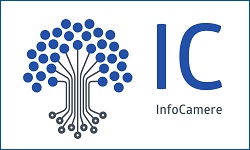by Marco Vianello – InfoCamere
National economies are seeking for new models of trust: public authorities will guarantee quality, reliability, transparency and authoritativeness of the services provided by the entire ecosystem.
The deep social and digital transformation we are currently experiencing gives rise to the need for a new model of trust, both digital and safe, that can overturn our usual way of interacting with society, companies and institutions.
Trust is the key word that makes possible connections and collaborations between different actors and players, today separated by territorial, administrative and sector barriers. In this new model, institutions will have to assume an unprecedented role in providing and guaranteeing the quality, reliability, transparency and authoritativeness of the services provided by the entire ecosystem. Users, devices, applications and data will increasingly move outside the area of direct control: an extraordinary opportunity for growth, but at the same time a system to be governed and managed in a structured and timely manner.
Digital identity and so-called disruptive technologies, such as Blockchain and Artificial Intelligence, stand as ideal solutions to realise new scenarios based on digital trust.
Increasingly, access to online services, both public and private, must be personal and non-transferable, thus requiring secure and trustworthy identification and management of so-called ‘digital identities’. The European Commission defines electronic identity (eID) as “a means by which people can electronically prove that they are who they say they are and thus gain access to services.”
Secure and privacy-preserving eID technology is an essential element for trust in the Digital Single Market, ensuring data protection and preventing online fraud. These aspects are crucial for e-services, especially public ones, as citizens and organisations need to trust that their data are processed in full compliance with existing data protection legislation, e.g., GDPR and the eIDAS regulation, for trustworthy digital transactions. Public administrations sometimes hold different and overlapping (even contradictory) versions of the same digital identity, encountering difficulties in securing a single consolidated and verifiable eID. This results in inefficient processes for both end-users (citizens and businesses) and civil servants, who have to verify the same information many times.
In this context, technologies such as Blockchain and Artificial Intelligence could bring great advantages in digital identity management: existing services will reach new segments of the population, removing existing barriers that currently cause negative social perceptions (e.g. privacy issues, complexity, digital security considerations, risk of identity fraud, etc.) while, at the same time, new and innovative online services that require reliable and privacy-preserving identity management can be released. InfoCamere, along with the Italian Chamber of Commerce system, is committed to experimenting and evaluating the new technological drivers of transformation not only of economic and production systems but also of the functioning role of public sector organisations, in order to ensure a more transparent relationship with businesses through greater effectiveness and efficiency in service delivery.

And this was one of the reasons InfoCamere joined an extremely qualified international consortium called IMPULSE (Identity Management in PUbLic SErvices) in February 2021, to explore new technologies and to conduct a multidimensional analysis of the impact on the European Single Market of the use of such disruptive technologies in public processes and services.
The results of this experimentation, expected in early 2024, will enable the development of a vision of how these technologies can change the way government and administrative institutions manage information and processes, and will lay the foundation for a keynote strategy, on a national as well as on an international level.
